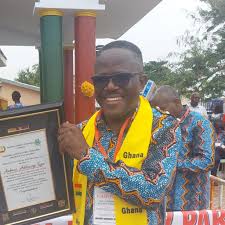Acknowledging a community leader
Andrews Addoquaye Tagoe was awarded the 2023 National May Day Award for his remarkable efforts in combatting child labour and forced labour in Africa. Affectionately known as Andy among his close circle, this recognition acknowledges his tireless contribution to children’s rights including his involvement in rescuing over 4500 children from exploitative labour practices and human trafficking. The rescued children were later enrolled in various educational and skill-building schemes in Ghana, some of whom became ardent child rights champions and youth activists in their communities. Through his leadership at (GAWU) Ghana Agricultural Workers Union, Andy has pioneered the creation of Child Labour Free Zones (CLFZs) across the country stimulating grassroots community action for thousands of children who are trapped in exploitative labour practices. Among the affected children, over 80% are engaged in agriculture-related activities, with the highest proportion found labouring in Ghana’s Lake Volta, Accra, and other coastal communities in the informal sector in the cocoa and rice farming, fishing, mining followed by service and manufacturing industries.

Establishing Child Labour Free Zones
Child labour-free zones are geographical areas – such as a village, plantation area, small island, urban neighborhood, or cluster of communities – where all children are systematically being taken away from labour and (re)integrated into formal, full-time schools. No distinction is made between different forms of child labour, as every child has the right to education. (CLFZs) are conceptualized to enhance national efforts to reduce all forms of child labour in each locality over a specific period. In creating CLFZs, certain parameters, measures, structures, and child development facilities should be placed in a particular area to facilitate the monitoring, prevention, identification, removal, referral as well as provision of social support system to affected children and or their parents to ensure that the incidence of child labour in the area is progressively reduced before a given area can be declared CLFZ.
GAWU, led by Andrews Tagoe, has long championed the eradication of child labour in Ghana’s cocoa farming sector. Their approach focuses on empowering farmers to strengthen systems, raise awareness about child labour risks, and implement a Community-Driven Child Labour Monitoring System (CLMS). This model, based on community development principles, aims to bolster the rural economy, promote social protection and decent work, address education and healthcare needs, and involve children in decision-making. Their implementing priorities include establishing Child Labour Free Zones, identifying and supporting affected children, and advocating for zero tolerance towards child labour in agriculture.
Through CLMS, GAWU prioritizes community action, education access, farmer livelihood improvement, and partner capacity building to advance the National Plan of Action (NPA) that envisions eliminating all forms of child labour in all sectors or reducing the incidence to the barest minimum. The Ghana Accelerated Action Plan Against Child Labour is formulated to further accelerate the country’s actions to support the agenda set by SDG 8.7 and to enable the country to become a child labour-free nation as a pathfinder country. Andrews Tagoe was part of the National Technical Working Group committee that helped the government of Ghana (The Ministry of Employment and Labour Relations) develop guidelines and protocols for establishing CLFZs in Ghana. Upon accepting his May Day award, Andy reaffirms his vision of zero tolerance for child labour. “It is possible to produce cocoa without child labour, it is possible to do agriculture without child labour and this is possible when farmers can organize”
Enabling child friendly cocoa farming.
A key component in GAWU’s approach is to remove children from hazardous activities in cocoa farming while enhancing the productivity of the agricultural workers. GAWU prioritizes both safeguarding children from hazardous cocoa farming activities and enhancing productivity for adult workers. In a Child Labour Free Zone in Ghana’s Accra region, they collaborated with 300 cocoa farmers to produce “GAWU Black Soap,” featuring a child-labour-free seal. This initiative illustrates their commitment to zero tolerance for child labour. GAWU’s focus on promoting decent work and sustainable product is crucial in combating child labour. Their leadership in organizing rural workers reflects a commitment to resilient farming communities and advocating for child labour-free practices. The income generation program, initiated by the Cocoa Research Institute of Ghana, trained local stakeholders including Andy, who further disseminated knowledge among farm workers to enable sustained income generation
The way forward
Andy is the regional coordinator for Global March Against Child Labour for Anglophone Africa and his journey and achievements serve as inspiration to us and for community leaders to combat child labour. GAWU plans to intensify efforts by advocating locally and internationally and inspiring communities to believe in the possibility of eradicating child labour through collective effort. They aim to establish more Child Labour Free Zones, tackle poverty through income-building initiatives, amplify child labour research in fishing communities, and disseminate the National Action Plan to high-risk areas in Ghana and do capacity building of communities to effectively implement it. Globally, they’ll advocate for social protection and decent income in the informal sector. GAWU’s plan aligns with their commitment to addressing root causes and empowering communities for lasting change.
-Chemi Lhamo, Communications Coordinator
